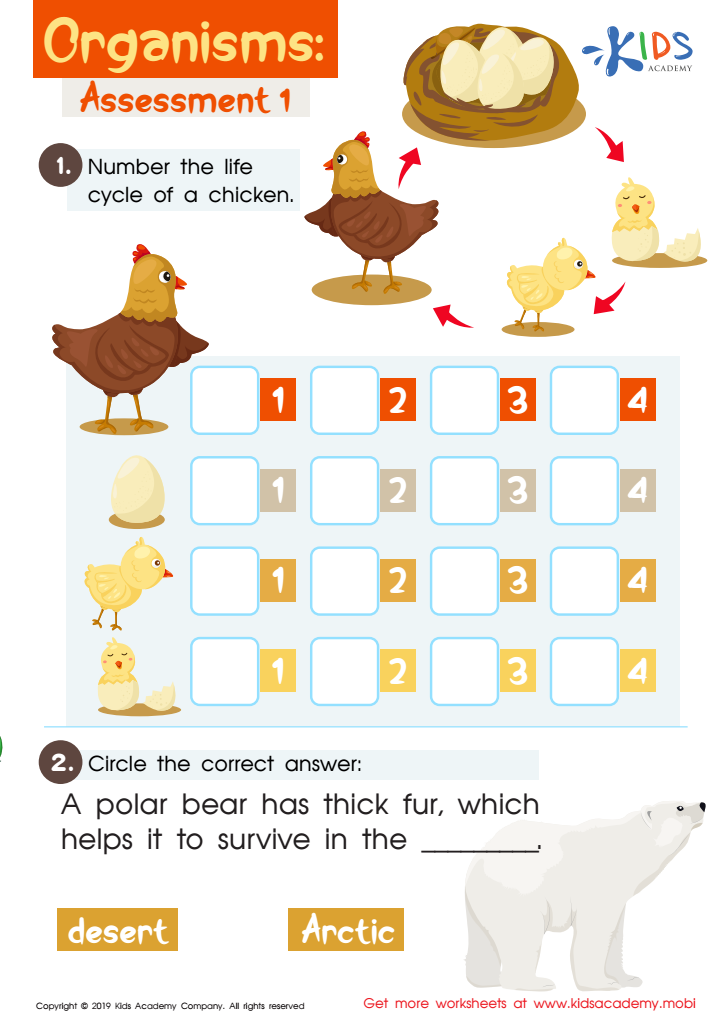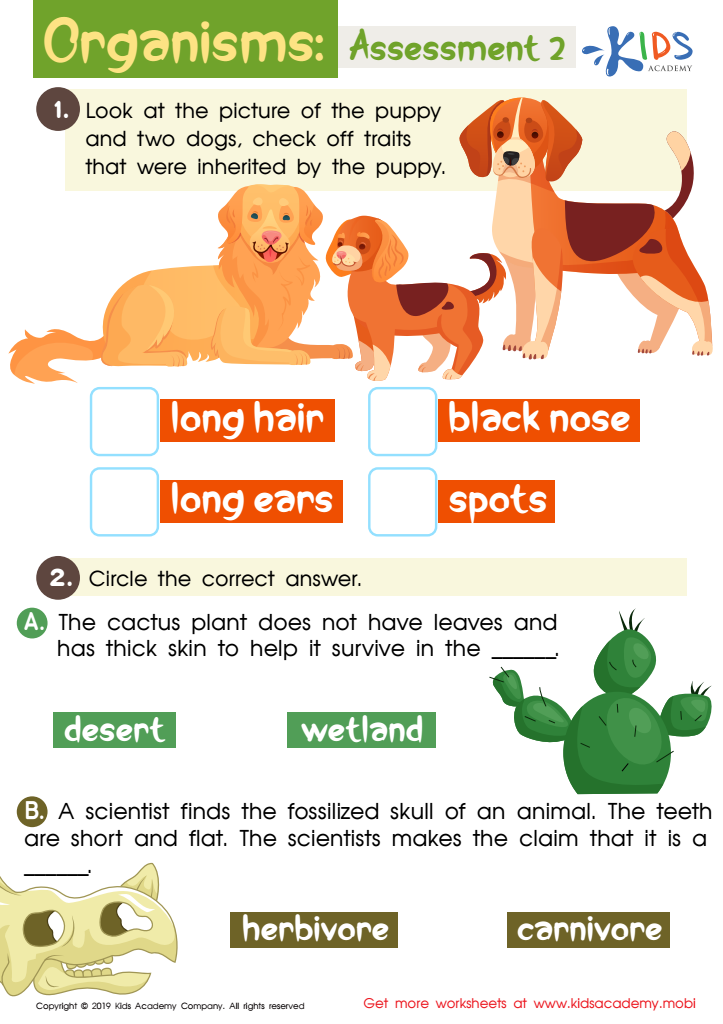Our Planet and Environment Worksheets Activities With Answers for Ages 6-8
5 filtered results
-
From - To
Explore our engaging "Our Planet and Environment Worksheets Activities with Answers" specifically designed for kids aged 6-8! These specially crafted worksheets introduce young learners to essential environmental topics, fostering their understanding of nature, conservation, and the significance of our planet. Each activity is paired with clear answer keys, ensuring easy assessment for parents and educators. Students can learn about ecosystems, recycling, and climate change through fun and informative exercises. Encourage curiosity and promote environmental awareness with these educational resources that delight and inspire young minds to protect our world. Perfect for home or classroom use, these worksheets make learning about the environment enjoyable!


Organisms: Assessment 1 Worksheet


Ecosystems: Assessment 1 Worksheet


Animals and Plants: Assessment 2 Worksheet


Organisms: Assessment 2 Worksheet


Animals and Plants: Assessment 1 Worksheet
Parents and teachers should prioritize activities related to our planet and environment for children aged 6-8 for several reasons. Firstly, this age group is highly impressionable. Engaging them in environmental activities instills a sense of responsibility and appreciation for nature, helping to cultivate future stewards of the Earth. By learning about ecosystems, wildlife, and the importance of natural resources through fun and interactive activities, kids can see firsthand how their actions affect the environment.
Moreover, these activities can enhance critical thinking, creativity, and teamwork. Crafting recycled materials into art or participating in tree-planting projects encourages imaginative thinking and cooperation among peers. Additionally, understanding environmental issues equips children with the knowledge to make informed decisions in the future, like reducing waste or conserving energy at home.
Incorporating environmental activities into learning can also encourage family bonding. Activities like bird watching or visiting nature reserves allow families to explore and enjoy the outdoors together. As children see their parents or teachers caring for the environment, they are more likely to adopt similar values. Ultimately, nurturing a connection to nature in early childhood is essential for a healthy planet and fosters a generation ready to take positive action for the future.
 Assign to My Students
Assign to My Students




.jpg)










